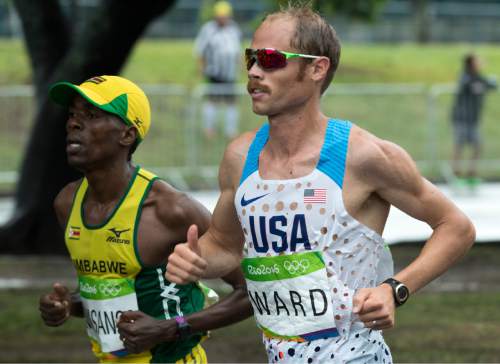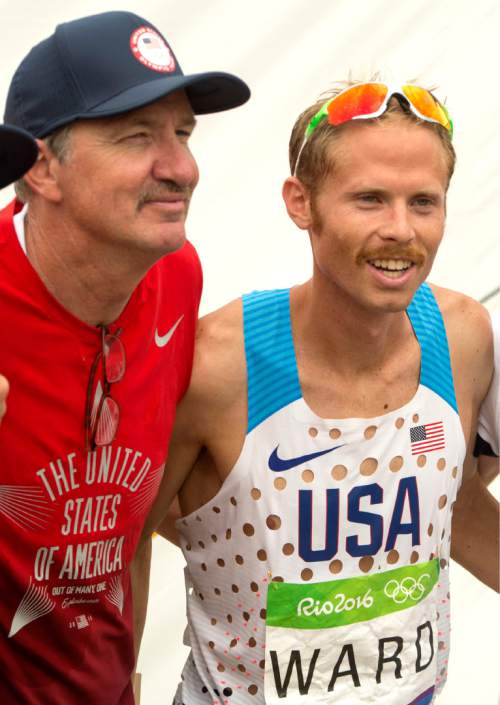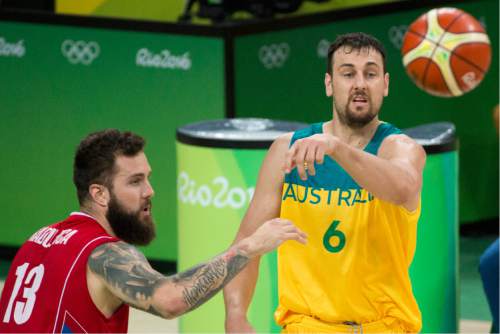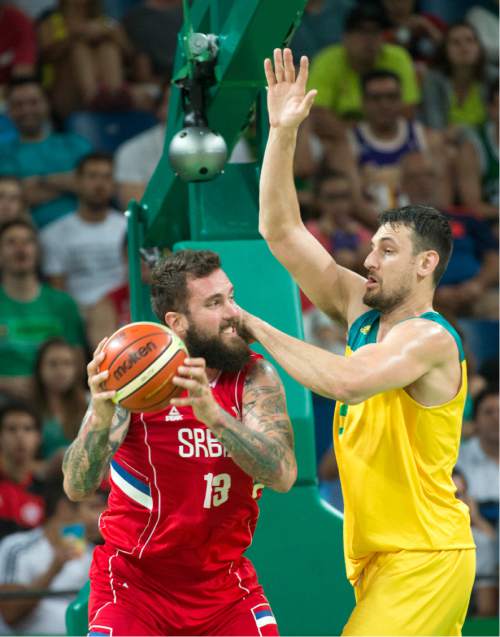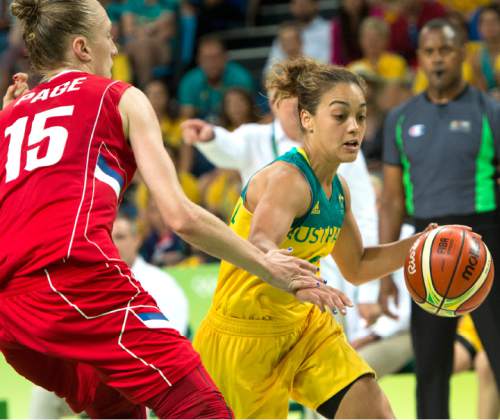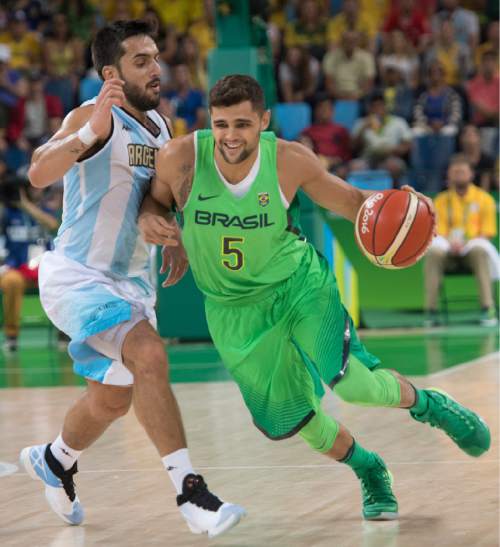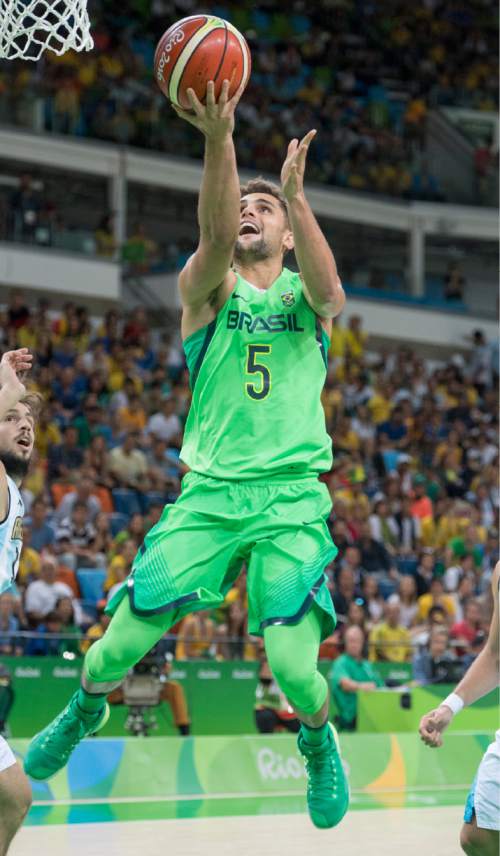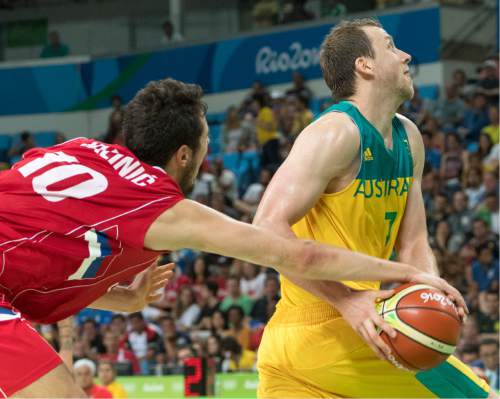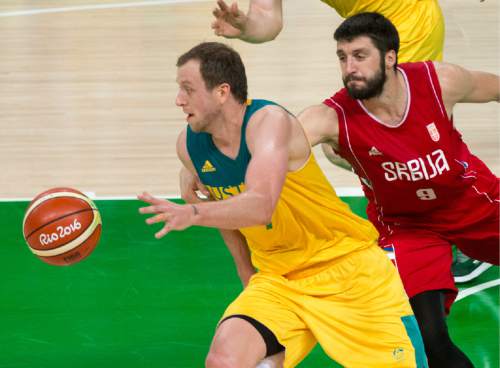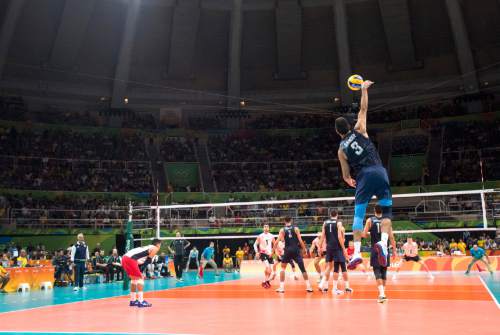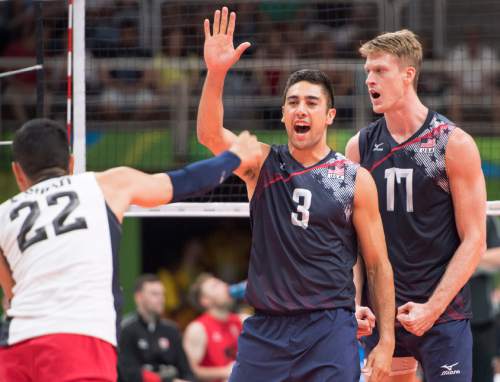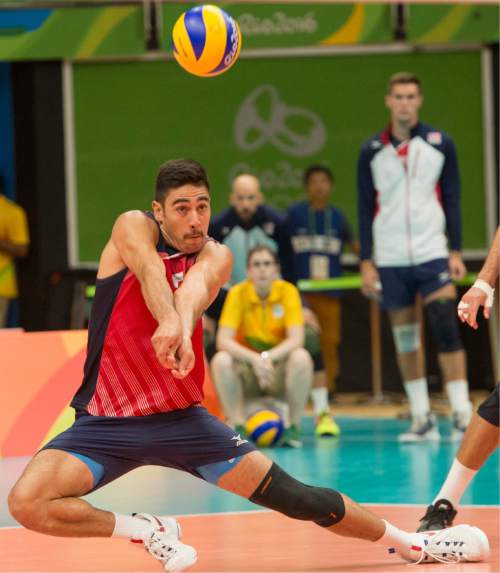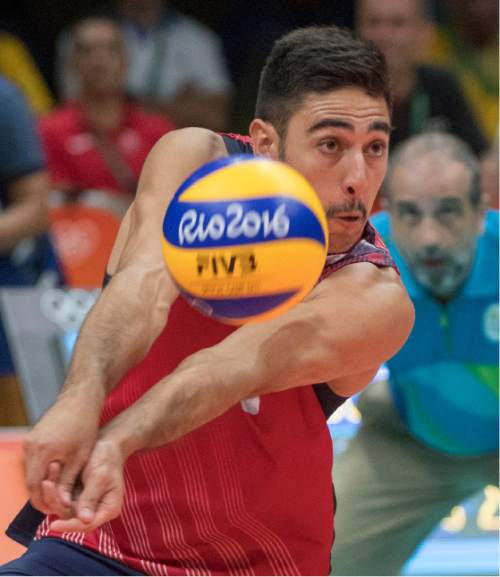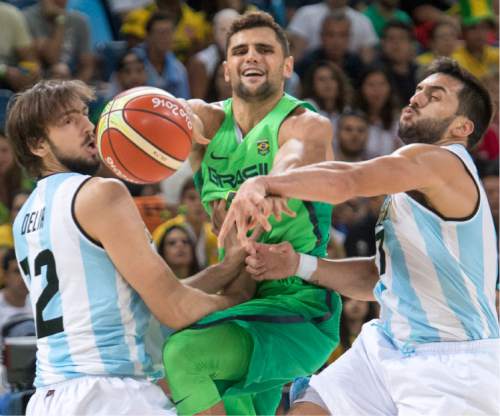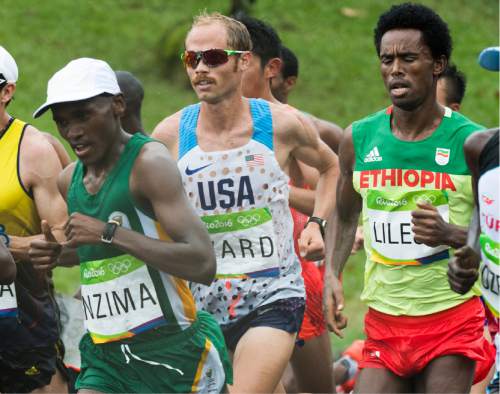This is an archived article that was published on sltrib.com in 2016, and information in the article may be outdated. It is provided only for personal research purposes and may not be reprinted.
Rio de Janeiro • A towel covered Joe Ingles' face as he walked toward the locker room, hiding his disgust and disappointment after his last basketball game of the 2016 Olympics. Only her hands were available to Kim Smith Gaucher, serving the same purpose.
During 16 full days of competition in Rio, I kept waiting to witness the scene that would frame our coverage of the games. And I missed it Sunday, watching Ingles play while BYU product Taylor Sander helped the USA men's volleyball team rally to win a bronze medal.
Or maybe I did see those defining moments, all along.
Some of Rio's biggest winners were the U.S. Olympic Committee, the Pac-12 Conference and two track venues in Utah that helped prepare visiting runners for three medal-winning performances. Their efforts, and Sanders' showing, will have to do from a Utah perspective.
This was not at all like watching the 2014 Winter Games. Everywhere you looked, Utahns such as Ted Ligety, Steven Holcomb and Noelle Pikus-Pace were medaling and celebrating in Sochi. It's different in the Summer Games, even though 20 athletes with Utah ties — a number that will be tough to top in the future — competed in Rio, and sixth-place marathon finisher Jared Ward of Davis High and BYU overachieved.
MyKayla Skinner, an incoming University of Utah gymnast, would have won a gold medal with the USA team, but she was not activated as the No. 1 alternate in Rio. So for her and the six former Ute basketball players and four current Jazz players, all competing for countries other than the USA, these were the Games of Coming Close.
The memorable moments kept coming on the court, just not with favorable outcomes. The Jazz's Raul Neto missed a potential winning shot in overtime in Brazil's eventual loss to rival Argentina. Leilani Mitchell, a former Ute star, couldn't escape defensive pressure in the last few seconds as Australia lost to Serbia in the women's quarterfinals. Gaucher and Utah/Canada teammate Shona Thorburn couldn't quite lift their team to the semifinals, 10 years after almost taking the Utes to the Final Four.
"Oh, it's heartbreaking. They deserved a better ending," Canada coach Lisa Thomaidis said of the ex-Utes after the quarterfinal loss to France.
Australia forever will believe it was cheated out of a bronze medal by a foul call in a one-point loss to Spain, explaining Ingles' postgame demeanor Sunday. The Boomers were driven to earn the country's first medal in men's basketball.
The Aussies' Andrew Bogut sought the first medal for a Ute athlete since Chinese women's swimmer Wang Xiaohong in 1992. He fouled out early in the third quarter, fading in the last two games after becoming one of the basketball tournament's biggest stories.
Other medals were barely missed as well. Elder Torres of the Real Monarchs finished fourth with Honduras in soccer and a wrestler coached by Heber City product Cody Sanderson lost a bronze medal match Sunday afternoon. By then, Sanders had extended a run of Utah-connected medal-winners in the Summer Games that started with Blaine Lindgren's silver in track and field in 1964. Logan Tom's silver in women's volleyball was the only Utah medal in 2012 and Sanders delivered the only one in Rio — after his team's tough semifinal loss to Italy ended its hopes for gold.
The USOC and the Pac-12 made quite a haul, though. With phenomenal showings in swimming and track and field, Americans won 121 medals — the most for a nonboycotted games. Counting member schools' athletes of the past, present and immediate future, the Pac-12 delivered 55 medals (including 25 golds). As a country, the conference would have ranked a strong fifth, one medal behind Russia.
Utah gets partial credit for three USA medals, two earned by Pac-12 alumni. Distance runners from the Nike Oregon Project and the Bowerman Track Club spent time training at the McCarthey Family Track and Field and BYU's Clarence F. Robison Track in Provo.
Matthew Centrowitz, Evan Jager and Galen Rupp won medals in Rio and Centrowitz became the first American winner of the 1,500 meters in 108 years.
That's the kind of historic performance USA athletes were delivering in Rio. Utahns' turns are coming in PyeongChang, South Korea, in 2018. Ski jumper Sarah Hendrickson of Park City tweeted Sunday, "Love watching Rio but next … KOREA!"
See you there.
Twitter: @tribkurt —
Best of the Games
The U.S. Olympic Committee's nominees for the top performances in Rio, determined by fan voting:
Female Athlete
• Simone Biles, gymnastics
• Gwen Jorgensen, triathlon
• Katie Ledecky, swimming
• Helen Maroulis, wrestling
• Claressa Shields, boxing
Male Athlete
• Carmelo Anthony, basketball
• Matthew Centrowitz, track and field
• Connor Fields, BMX
• Michael Phelps, swimming
• Kyle Snyder, wrestling
Team
• Women's basketball
• Women's gymnastics
• Women's rowing eight
• Women's water polo
• Women's track, 4 x 100 relay


